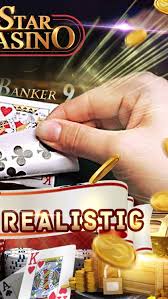
Mastering the Art of the Poker Game
Welcome to the world of poker game poker game, where skills, strategy, and psychology meld into an exhilarating contest of wits. From the novice hobbyist to the seasoned professional, poker is a game that captivates and challenges players from all walks of life. This article will guide you through the essential aspects of poker, explore its rich history, and provide you with strategies to elevate your game whether you’re playing at home or in a casino.
The Rich History of Poker
Poker is believed to have originated in the early 19th century in the United States, although its exact origins are steeped in mystery. Many historians suggest that it evolved from various card games played in Europe, such as the French game “poque” and the German game “pochen.” By the 1830s, poker was being played on the Mississippi River, and its popularity began to grow rapidly.
The game evolved through various formats and types, leading to the emergence of different poker variants like Texas Hold’em, Omaha, and Seven Card Stud. Each version brought unique rules and strategies, but the fundamental goal of winning chips or money from opponents has remained a constant throughout poker’s history.
Understanding the Basics of Poker
At its core, poker is a game of skill and chance. Here’s a brief overview of the basic rules that govern most poker games:
- Deck: Poker is usually played with a standard 52-card deck.
- Players: A typical game includes anywhere from 2 to 10 players.
- Objective: The aim is to win chips by having the best hand or convincing other players to fold.
- Betting Rounds: Poker games consist of several betting rounds, where players can check, raise, fold, or call.
Hand Rankings
No poker game would be complete without an understanding of hand rankings. Knowing which hand beats another is crucial for success. Here’s a quick rundown:

- Royal Flush
- Straight Flush
- Four of a Kind
- Full House
- Flush
- Straight
- Three of a Kind
- Two Pair
- One Pair
- High Card
Key Strategies for Success
While luck plays a part in poker, skillful play can significantly increase your chances of winning. Here are some vital strategies that can help you improve your game:
Understand Your Opponents
Paying attention to how other players behave can provide you with an edge. Look for patterns in their betting, such as aggressive players who frequently raise, or cautious players who check and fold often. This observational skill can guide your decisions throughout the game.
Position Matters
Your position at the table can greatly influence your strategy. Players who act later in the betting round have the advantage of seeing how their opponents play before making their own decisions. Learn to leverage your position to make more informed choices.
Practice Bankroll Management
It’s essential to manage your bankroll wisely. Set a budget for how much you’re willing to spend, and stick to it. Avoid going “all in” for fear of losing; instead, play conservatively, especially if you’re new or at a public game.
Learn When to Fold
One of the most challenging aspects of poker is knowing when to fold. Many players struggle with this, particularly after investing a lot in the pot. However, preserving your chips for a better opportunity can sometimes be more beneficial than chasing a losing hand.

The Online Poker Revolution
With the advent of the internet, poker has transformed dramatically. Online poker rooms have made it easier for players to join games anytime and from anywhere. This shift has led to the rise of online tournaments, global competition, and a new generation of players who have honed their skills against an international pool.
Tips for Playing Online
If you’re new to online poker, here are some tips:
- Choose Reputable Sites: Always play at established and reputable online casinos.
- Take Advantage of Bonuses: Many sites offer bonuses and incentives for new players; make sure to take advantage of these offers.
- Practice with Free Games: Use free poker games to practice before committing real money.
Conclusion
The poker game is not just about cards; it’s a blend of skill, strategy, psychology, and a bit of luck. Whether you’re playing with friends at home, participating in local tournaments, or testing your skills at online casinos, mastering the art of poker can provide not just potential financial rewards but also a fantastic social experience. As you play more, you’ll develop a deeper understanding and appreciation for this timeless game. So shuffle the cards, gather your chips, and good luck on your poker journey!